Introduction
As your baby grows, it’s natural to want to help them reach developmental milestones, like walking. Baby walkers have long been a popular choice among parents who believe they assist in a child’s early walking skills. But is a baby walker really necessary? Or could it potentially be more harmful than beneficial?
In this blog post, we will explore whether baby walkers are a must-have item, discuss their pros and cons, and offer alternatives to help your baby walk safely. By the end, you’ll have a clearer idea of whether a baby walker is necessary for your little one.
What is a baby walker?
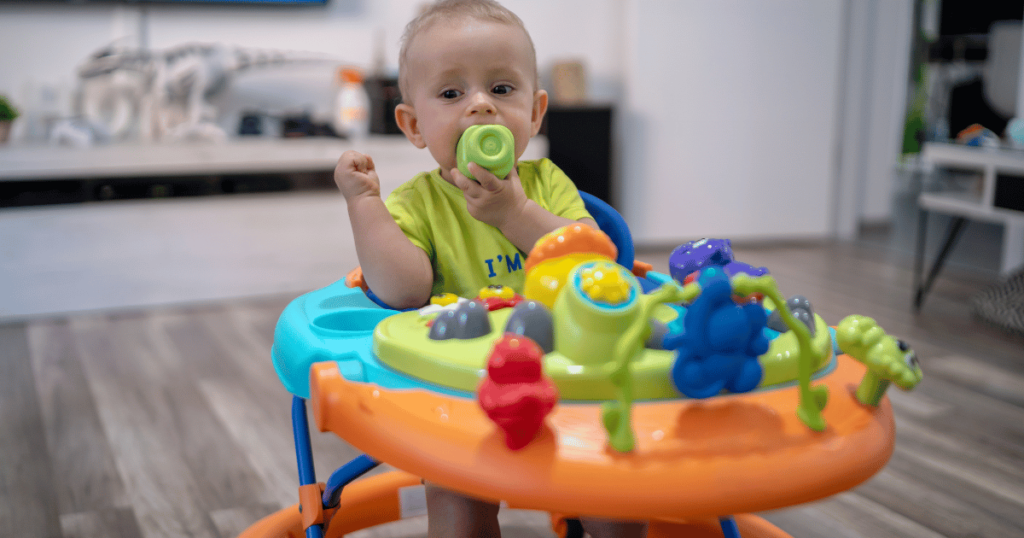
A baby walker is a device that allows babies to move around before they can walk independently. The baby sits in a harness or seat and can use their feet to push off the ground, rolling the walker across the floor. The walker typically comes with toys or activity trays to keep babies entertained.
Why do parents buy baby walkers?
Many parents buy baby walkers believing they help their child learn to walk faster. They also see it as a way for babies to explore their surroundings safely while being entertained.
At what age can babies use a walker?
Most baby walkers are designed for babies aged 4 to 16 months, but this can vary based on your baby’s strength and coordination.
Are baby walkers necessary for development?
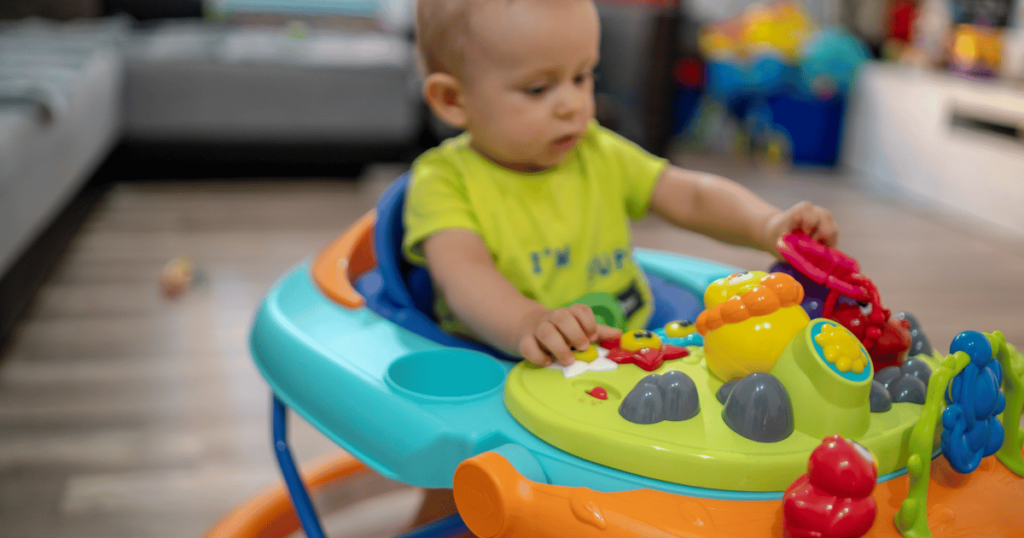
The truth is, baby walkers are not necessary for a baby’s development. In fact, several pediatricians and child development experts advise against using baby walkers. Here’s why:
#1 No Boost to Walking Skills
Contrary to popular belief, baby walkers do not help babies walk earlier. Walkers support the baby’s weight and allow them to move without developing the necessary balance, coordination, or leg strength required for walking. Studies have shown that babies who use walkers might actually learn to walk later than babies who don’t.
Babies in walkers tend to lean forward and use their toes to push off, which is not the proper walking technique. This can slow down their natural walking process.
#2 Safety Risks
Baby walkers are associated with a high number of accidents each year. Babies can easily roll into dangerous situations, like falling down stairs, bumping into sharp objects, or reaching for hot or toxic items that would otherwise be out of reach. According to the American Academy of Pediatrics (AAP), thousands of children are injured in walker-related accidents annually. In fact, the AAP recommends that baby walkers not be used at all due to these safety concerns.
What are the benefits of baby walkers?
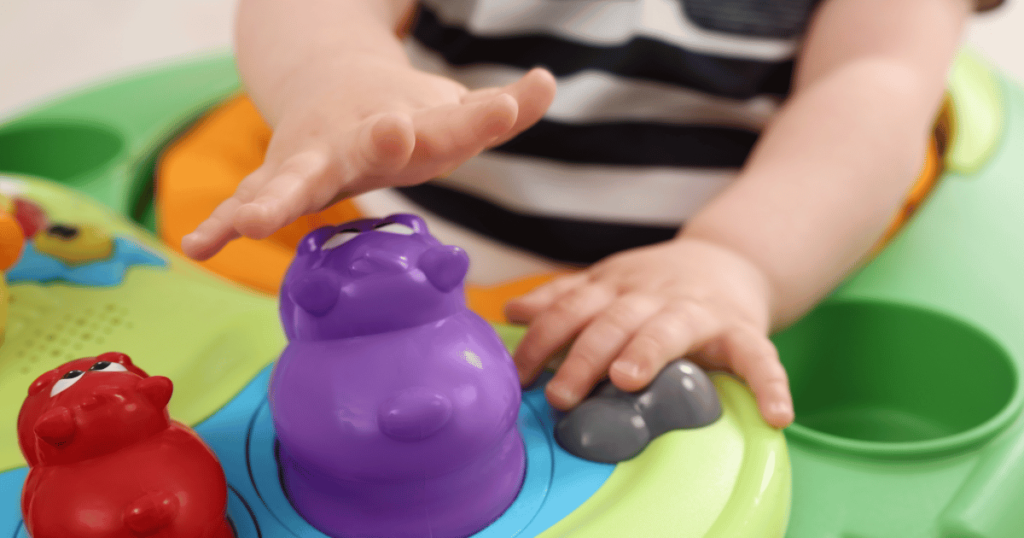
Although not necessary, some parents still choose baby walkers for the following reasons:
#1 Temporary Entertainment
Many baby walkers come equipped with fun toys, lights, and sounds to keep babies entertained. This can provide parents with a short break while their baby plays in the walker.
#2 Mobility Before Walking
Baby walkers allow babies to move independently around the house, giving them more freedom than they would have if confined to a playpen or crib. This can help satisfy a baby’s curiosity and desire to explore.
What are the disadvantages of baby walkers?
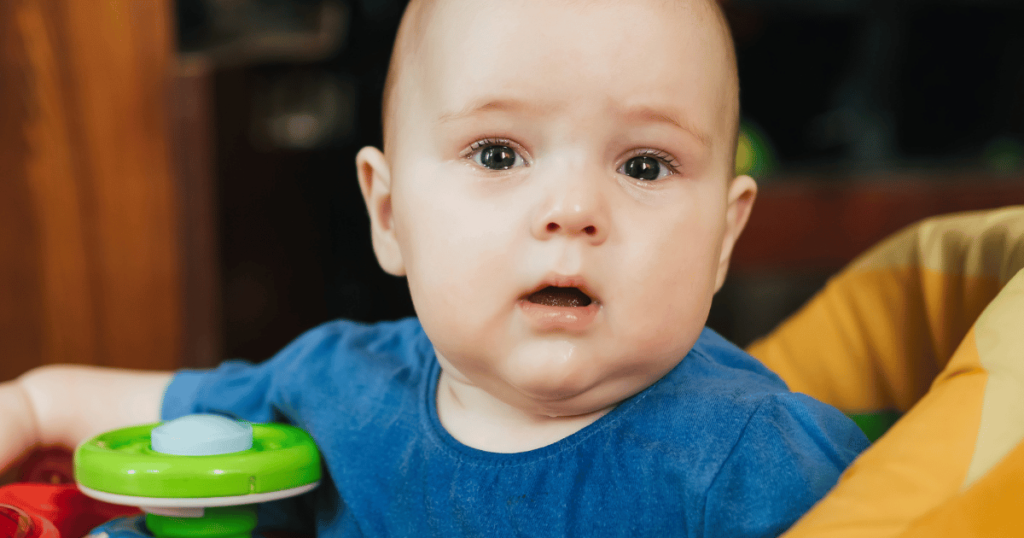
While the entertainment and mobility benefits may seem appealing, the drawbacks of baby walkers often outweigh them. Here are the main drawbacks to keep in mind:
#1 Delayed Motor Development
One of the main issues with baby walkers is the delay in motor skill development. Walkers allow babies to move around without using their muscles correctly. As a result, they may take longer to learn to walk, crawl, and develop balance. Crawling is especially important because it helps babies build strength and coordination in their arms, legs, and core.
#2 Posture Problems
Babies using walkers often develop bad posture, such as leaning forward and pushing off with their toes. This improper posture can lead to long-term issues that need correction once the baby starts walking on their own.
#3 Safety Hazards
As mentioned earlier, the most significant disadvantage is the increased risk of injury. Baby walkers allow babies to move at a faster pace, which means they can quickly encounter dangerous situations. Even in a baby-proofed home, hazards can arise.
What are the alternatives to baby walkers?
Instead of using a baby walker, there are safer alternatives that can support your baby’s motor development while ensuring their safety.
#1 Push Toys
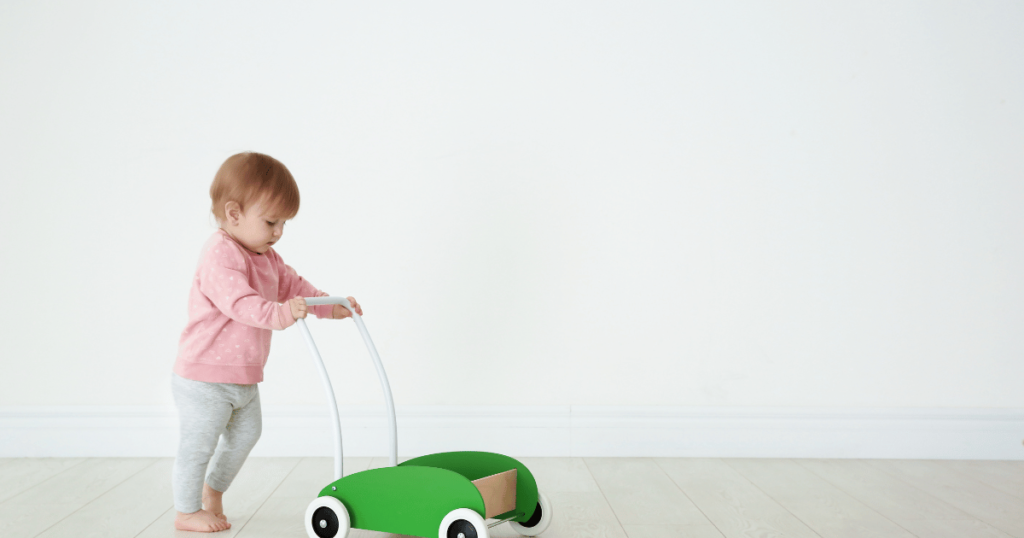
Push toys allow babies to practice walking with proper support. These toys have handles that your baby can hold onto as they take steps. Unlike walkers, push toys encourage babies to develop strength and balance naturally. Some push toys even come with built-in brakes to prevent them from moving too fast.
#2 Stationary Activity Centers

Stationary activity centers are a great alternative to baby walkers. These centers allow babies to stand, bounce, and play while staying in one place. The seat rotates so they can access toys and activities but cannot move around the room. This eliminates the risk of accidents.
#3 Playmats
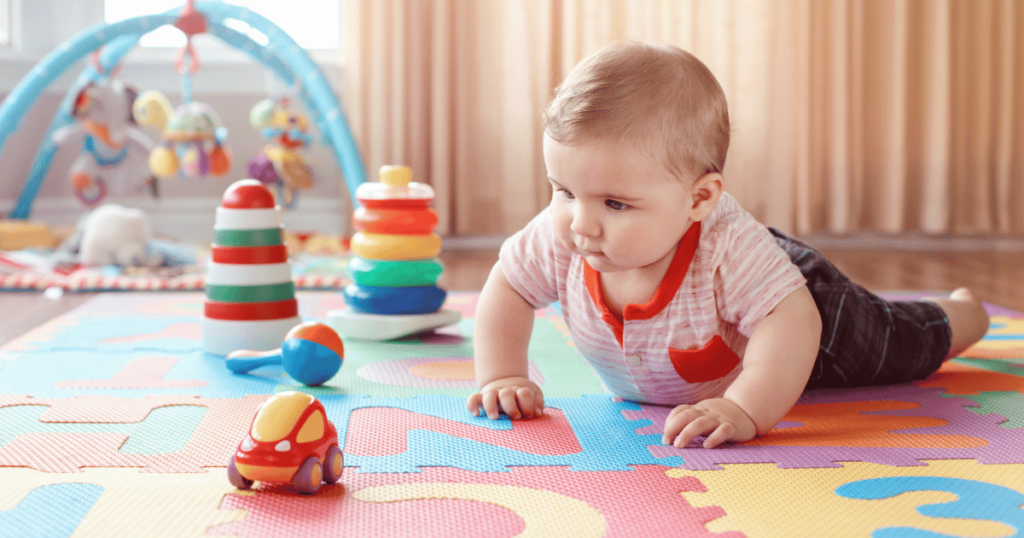
Play mats provide a safe, open area for babies to practice crawling and rolling. Crawling is an essential milestone that helps build the muscles needed for walking. Play mats give babies the freedom to explore their movements naturally.
Common Questions About Baby Walker
Do push toys help babies walk?
Yes! Push toys encourage babies to develop the necessary balance and coordination to walk on their own.
What are the best alternatives to baby walkers?
Push toys, stationary activity centers, and play mats are great alternatives that promote healthy development.
Which baby walker is best for children?
Push walkers, such as the VTech Sit-to-Stand Learning Walker or the Hape Wonder Walker, are considered the best for children as they promote safe mobility, balance, and muscle development without the risks associated with seated walkers
Are baby walkers safe for babies’ development?
No, baby walkers are generally not safe for babies’ development. They can delay key motor milestones like crawling and walking, and may interfere with balance and muscle development. They also increase the risk of accidents like falls.
Is a walker good for babies? My baby is 10 months old.
Traditional seated walkers are not recommended for any age, even at 10 months, as they can delay motor development. A push walker would be a safer alternative, allowing your baby to practice standing and walking while improving balance and strength.
Do people love baby walkers for their babies?
While some parents enjoy the temporary convenience of baby walkers, many have shifted away from them due to concerns over developmental delays and safety risks. Push walkers are becoming a more popular and safer alternative.
Where can I obtain a plastic baby walker?
Plastic baby walkers can be found at major retailers like Amazon, Walmart, and Target, but it’s important to choose wisely and consider safer options like push walkers. Always look for products that meet safety standards.
What are the disadvantages of a baby walker?
The disadvantages of baby walkers include:
- Developmental delays (hinders muscle and balance development)
- Safety risks (increased chances of falls, access to dangerous areas)
- False sense of walking ability (doesn’t help babies learn to walk properly)
These risks have led to many experts advising against their use.
Is a baby walker essential for a baby’s development?
No, a baby walker is not essential for a baby’s development. Babies naturally learn to crawl, stand, and walk without needing a walker, which may even delay motor skill development.
Can babies learn to walk without a walker?
Yes, babies learn to walk naturally through crawling, cruising, and balancing on their own. Walkers are not required for this developmental process.
Are there alternatives to baby walkers?
Yes, alternatives like activity centers, play mats, and push walkers promote motor development safely while allowing babies to practice standing and walking without the risks associated with walkers.
Is it safe to use a baby walker?
Baby walkers come with safety risks, such as falls and access to dangerous areas. Many experts recommend against their use due to the potential hazards and developmental delays they can cause.
Why do some parents choose not to use a baby walker?
Many parents avoid baby walkers because of the associated risks, such as accidents and the potential delay in a baby’s natural walking skills, opting for safer developmental toys instead.
Conclusion
In conclusion, a baby walker is not necessary for your baby’s development. While walkers may offer temporary entertainment and mobility, they come with several disadvantages. Baby walkers do not teach babies how to walk and can even delay their motor skill development. Additionally, they pose safety risks that are not worth the convenience.
For parents looking to support their baby’s walking journey, it’s better to opt for safer alternatives like push toys, stationary activity centers, or play mats. These options encourage healthy development while minimizing the risk of injury.
Other References
- American Academy of Pediatrics (AAP)
- BabyCenter
- What to Expect
- Verywell Family
- Parents
- Mom Loves Best
More to Read
- How to bathe a newborn baby in 13 steps: The comprehensive guide
- Getting the temperature just Right: A guide to baby bath water
- Bath Time: How often should you wash your little one
- Baby Bathtubs: The Best 5 Ways to Store Baby Bathtubs in 2024
- 4 Steps to Choose a Collapsible Baby Bathtub in 2024
- The Best 5 Baby Bathtubs for Small Space in 2024
- The Best 5 Inflatable Baby Bathtubs In 2024

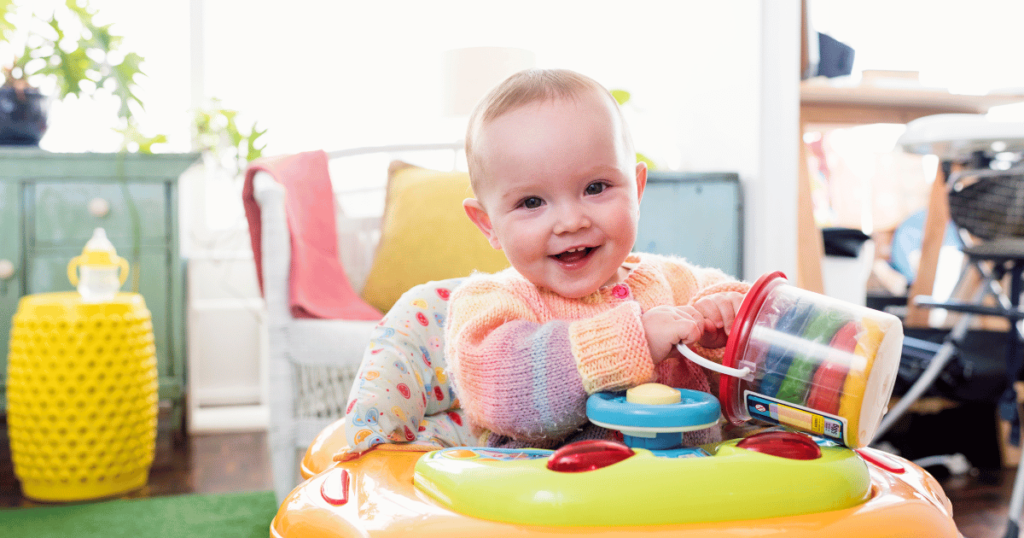
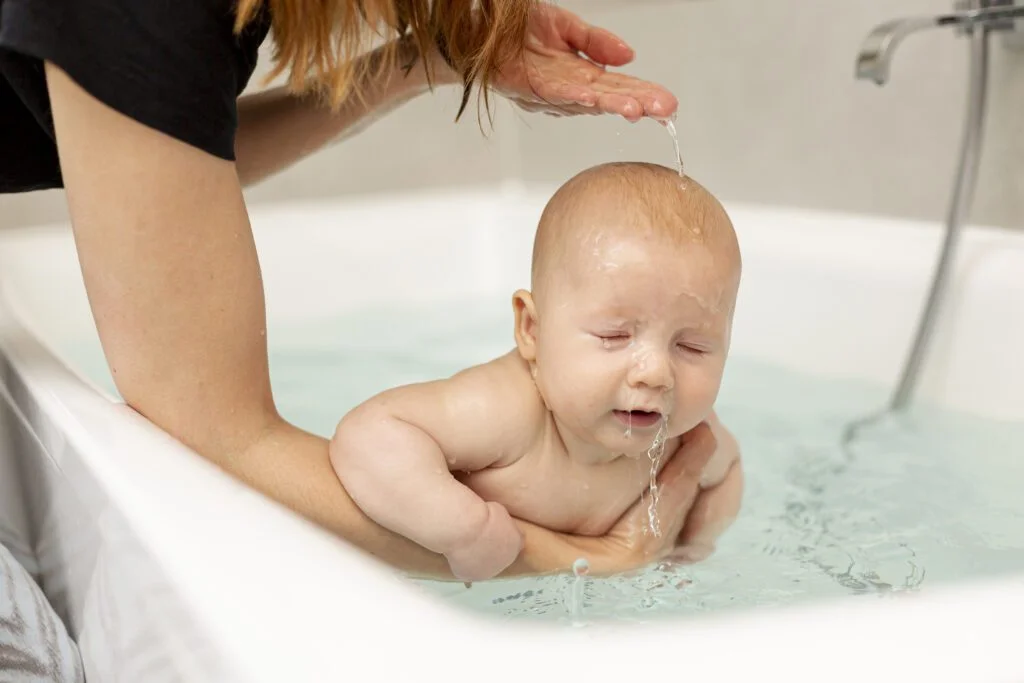

A person essentially lend a hand to make significantly articles I would state.
This is the first time I frequented your web page and up
to now? I amazed with the analysis you made to
create this actual publish incredible. Excellent task!!